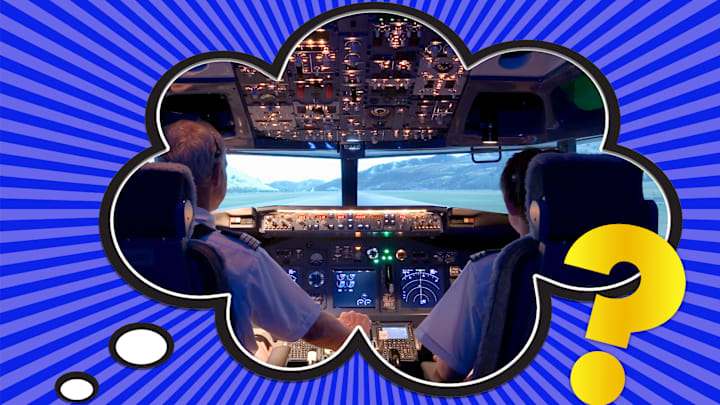In aviation terms, the cockpit is where the pilot is stationed to oversee the control and flight path of aircraft. It’s used in commercial planes, where pilots address passengers from the cockpit, as well as military craft. Han Solo and Chewbacca spend most of their time on the Millennium Falcon in there.
The term is ubiquitous, but it’s also a little puzzling. So how did pilots’ quarters come to be known as the cockpit?
According to General Aviation News, there are a few possible explanations, but all of them follow a basic logic and chronology. What’s known for certain is that cockpit first appeared in the 1500s as the term for the arena in which roosters were forced to attack one another in cockfights. Usually, these surfaces were dug into the ground to avoid the roosters fleeing, hence cockpit.
This has virtually nothing to do with airplanes, especially when one considers the concept of flight was not on the forefront of minds in the 16th century. One connecting thread might have been The Cockpit, a London theater that was built on the site of an old rooster cockpit—hence the name—and torn down in the 1600s. In its place were buildings that housed government officials.
You can probably see where this is going. The Cockpit was familiar enough to Londoners that the new buildings were known by that name. Because they housed the brain trust of the country, cockpit started to become synonymous with a command center.
Pilots may have also taken a cue from another definition of the term, which also grew to include any type of war zone. Because fighter planes were locked in combat, they were essentially in an airborne cockpit.
One last theory: cockswain (usually spelled coxswain today) was used to describe the person in charge of a boat. Cockpit came to mean the area where the boat could be steered. Again, it’s possible the term then migrated to aviation.
Cockpit is also used in automotive circles, dating as far back as 1904, and in 1909, The New York Times used it in reference to an “airship.” Some of the earliest planes wouldn’t have had use for the term. In 1903, Orville Wright controlled his craft merely by laying on top of the wing.
[h/t General Aviation News]
